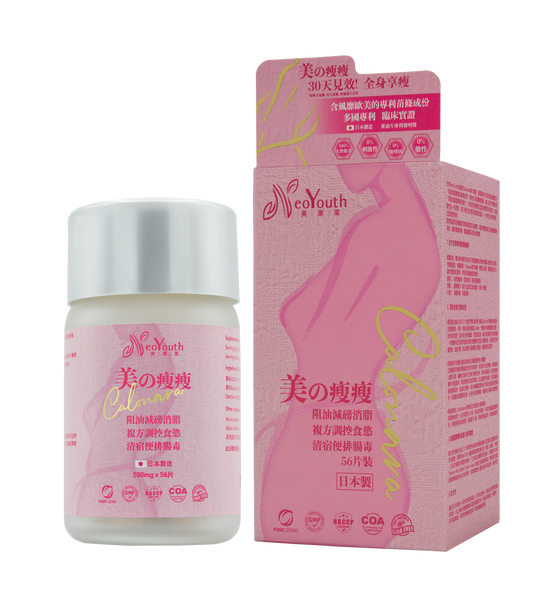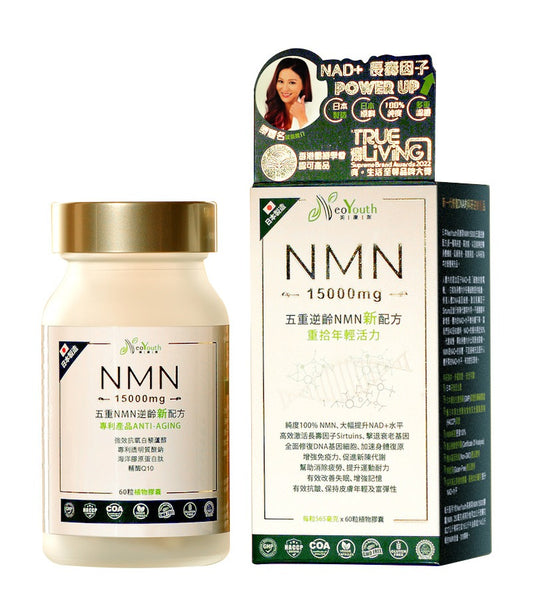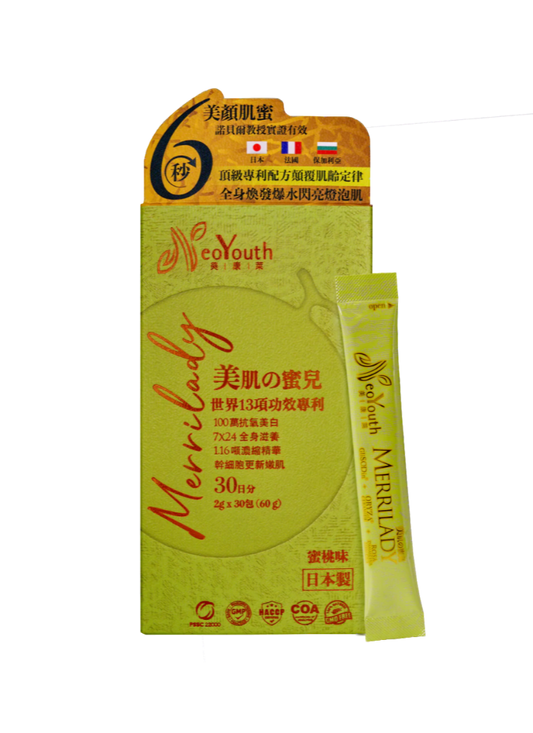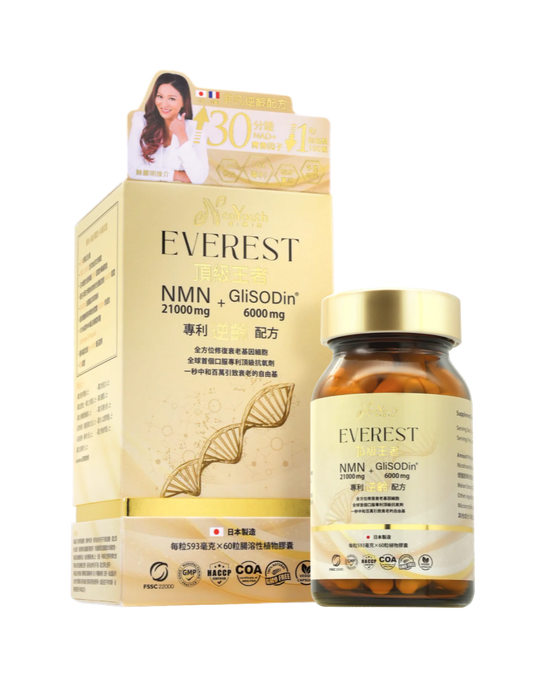Menopause is a significant physiological transition for women. Hormonal fluctuations not only affect the body but also cause psychological stress. Many women experience menopausal anxiety and panic . If not addressed early, this anxiety can worsen, further impacting daily life and interpersonal relationships. This article will explore the symptoms and causes of menopausal anxiety and share feasible adjustments and improvement methods to help you regain balance in your life.
What is menopausal anxiety and panic ?
Menopause is a crucial stage in a woman's life, marking the transition from her reproductive years to menopause. During this time, significant fluctuations in hormone levels occur, particularly a sharp decline in estrogen and progesterone, which can negatively impact the nervous system and mood regulation. Some women experience menopausal anxiety and panic during this period .
So-called menopausal anxiety and panic are not simply psychological stress, but rather a combination of physical and psychological effects. Hormonal imbalances directly affect the secretion of neurotransmitters such as serotonin and dopamine in the brain, making mood swings more pronounced. Simultaneously, the accompanying physiological discomforts of menopause, such as hot flashes, insomnia, or palpitations, can amplify anxiety, creating a vicious cycle.
A list of menopausal anxiety and panic symptoms
Menopausal anxiety and panic are not simply about mood swings; they involve multiple psychological and physiological changes. Due to hormonal fluctuations, women often experience a series of conditions during menopause, which can impact daily life and interpersonal relationships to varying degrees. The following are detailed symptoms of menopausal anxiety and panic :
Psychological and emotional symptoms
During menopause, even small things or daily activities can trigger inner tension and anxiety, and may even lead to a loss of motivation for activities that were previously interesting.
-
Persistent anxiety: Excessive and uncontrollable worry about health, family, or work.
-
Panic attack: This is a common and intense symptom, mainly accompanied by a sudden and intense feeling of unease and uncontrollable fear, as if you are about to lose control or face a life-threatening situation.
-
Mood swings: You may become more irritable, sensitive, and emotional, which may lead to persistent feelings of depression or menopausal mood swings.
Physical reaction symptoms
The symptoms of menopausal anxiety and panic are not limited to the psychological level; physical reactions are also closely related to mood fluctuations. Many women initially seek medical attention for physical symptoms only to discover that the root cause is menopausal anxiety.
-
Rapid heartbeat or palpitations: Many women experience menopausal palpitations, which is a sudden increase in heart rate, missed beats, or very strong heartbeat. This may be mistaken for a heart problem, but it is actually a physiological reaction caused by anxiety.
-
Sweating and hot flashes: Excessive sweating, hot palms, or a sudden hot flash are typical symptoms of anxiety affecting the autonomic nervous system.
-
Difficulty breathing: The feeling of shortness of breath and tightness in the chest can make women feel suffocated and uneasy during a panic attack.
-
Gastrointestinal discomfort: Abdominal pain, diarrhea, or indigestion may be a digestive system reaction caused by anxiety, also known as "gastrointestinal anxiety".
Sleep and lifestyle impact
Menopausal anxiety and panic also have a significant impact on sleep. Many women experience difficulty falling asleep or waking up in the middle of the night during this time. Such sleep problems can further affect daytime mental state and may lead to poor concentration or memory decline.
Further Reading: Menopausal discomfort may be a symptom of menopausal syndrome! Recommended menopausal supplements.
Exploring the causes of menopausal anxiety and panic
Menopausal anxiety and panic are not accidental; these symptoms are influenced by a variety of physiological and psychological factors. As women enter menopause, hormonal fluctuations are one of the most direct causes, affecting not only physical function but also mood and mental health. Understanding the causes of menopausal anxiety and panic can help women cope with the challenges of the menopausal process.
Hormonal changes
One of the main causes of menopausal anxiety and panic is hormonal fluctuations. As women enter menopause, the secretion of estrogen and progesterone decreases significantly. This not only alters their physiological state but can also trigger anxiety, mood swings, and sleep problems. Estrogen plays a crucial role in the brain, helping to regulate mood and maintain a stable state of mind. When estrogen levels decline, women may experience anxiety and panic reactions.
neurotransmitter imbalance
During menopause, hormonal fluctuations also affect neurotransmitters in the brain, particularly serotonin and norepinephrine, which are associated with mood and stress responses. When the levels of these neurotransmitters are unstable, women may be more prone to anxiety or depression, triggering panic attacks. This physiological change is another potential cause of menopausal anxiety and panic .
Life stress and psychological burden
Besides physiological factors, external environmental pressures and internal psychological burdens are also among the causes of menopausal anxiety and panic . Many women face pressure from work, family, and health during menopause, and these life changes themselves are stressors, thus exacerbating anxiety.
Sleep problems and physiological responses
Women going through menopause commonly experience sleep problems, which can exacerbate anxiety and panic. Due to hormonal changes and menopausal anxiety and panic symptoms such as hot flashes , many women have difficulty falling asleep or wake up frequently at night. Insufficient sleep directly affects the brain's ability to regulate emotions, leading to fatigue, anxiety, and irritability during the day.
5 Ways to Improve Menopausal Anxiety and Panic
Many women feel confused and helpless as they experience menopausal anxiety and panic , facing emotional challenges. However, there are several effective ways to help alleviate these symptoms, thereby restoring emotional balance and improving quality of life. Through lifestyle adjustments, professional treatment, and psychological support, women can better manage menopausal anxiety and panic .
1. Adjust your lifestyle
Adjusting your lifestyle can alleviate menopausal anxiety and panic . First, maintaining a regular sleep schedule and ensuring sufficient rest and sleep can help reduce the occurrence of anxiety and panic.
In addition, maintaining a balanced diet is key to maintaining stable mood. Consuming foods rich in vitamins, minerals, and Omega-3 fatty acids (such as deep-sea fish, nuts, and leafy green vegetables) can improve stress resistance and enhance mental health. Avoiding excessive caffeine and sugar intake has a positive effect on reducing anxiety.
2. Exercise and relaxation techniques
Regular exercise can significantly help alleviate menopausal anxiety and panic . It is recommended to engage in at least 150 minutes of moderate-intensity exercise per week, such as brisk walking, swimming, or cycling, which releases endorphins and helps improve mood stability.
In addition, learning relaxation techniques is also very important. Mindfulness activities such as yoga, meditation, and deep breathing exercises can effectively lower cortisol (stress hormone) levels, helping women relax and release internal stress. In particular, deep abdominal breathing can provide immediate relief when experiencing panic attacks.
3. Seek psychological counseling and professional assistance.
When facing menopausal anxiety and panic , seeking professional psychological counseling or treatment is a very effective approach. Psychotherapy, such as cognitive behavioral therapy (CBT), can help women learn to identify and change negative thought patterns and behaviors that lead to anxiety. Talking to a therapist not only provides a safe space to express concerns but also allows you to learn specific coping skills.
If menopausal anxiety symptoms severely affect your daily work, social life, or family life, or if you experience frequent panic attacks or even have thoughts of self-harm, you should seek professional help from a family doctor or psychiatrist immediately.
4. Drug treatment
For women experiencing severe menopausal anxiety and panic symptoms, doctors may recommend medication. Common treatments include antidepressants such as selective serotonin reuptake inhibitors (SSRIs), which effectively regulate neurotransmitters in the brain, thereby reducing anxiety symptoms. Hormone replacement therapy (HRT) is another option, but it should only be used after a thorough evaluation of health risks by a doctor. Remember, all medications must be prescribed by a doctor; never buy and take them on your own.
5. Choose suitable supplements and skincare products.
Choosing suitable menopausal supplements can play a positive role in alleviating menopausal anxiety and panic . For example, supplements containing B vitamins, vitamin D, calcium, magnesium, and Omega-3 fatty acids can effectively help stabilize mood, improve sleep quality, and reduce anxiety. It is recommended to consult a doctor or nutritionist before choosing a product.
NeoYouth (Japan) and Everest (a premium product) enhance overall health and alleviate menopausal anxiety and panic.
When experiencing menopausal anxiety and panic , choosing the right supplements can effectively help regulate the mind and body and alleviate discomfort. NeoYouth Everest, a premium nutritional supplement from Japan, is highly effective in boosting energy and improving cell vitality. Clinically proven, it is particularly suitable for use during menopause.
It contains up to 21,000mg of NMN (β-nicotinamide mononucleotide), which can effectively enhance cellular energy and promote metabolism, thereby improving menopausal anxiety symptoms . The product undergoes strict quality control and helps adjust the body's internal physiological environment, reducing anxiety and stress, allowing women to maintain a good physical and mental state during menopause.
Want to know how to effectively improve menopausal anxiety and panic? Try NeoYouth Everest, the ultimate product from Japan , now to help you easily understand and cope with the causes and symptoms of menopausal anxiety , and restore your confidence and vitality.
References:
1. GK Health Network - Menopausal symptoms include panic, anxiety, and depression, and frequent chest tightness and palpitations. What should I do?
2. Zhenzhi Psychosomatic Medicine Clinic - What to do about menopausal depression? Doctors tell you the 3 most common causes of menopausal depression!
3. Health and Medical Network - Menopausal mood swings and weight gain? Doctors teach you "4 adjustment methods" to regain a good state.
4. The Chinese University of Hong Kong Medical Centre - Walking Together on the Medical Journey: Adjusting Diet and Exercise to Relieve Menopausal Discomfort





